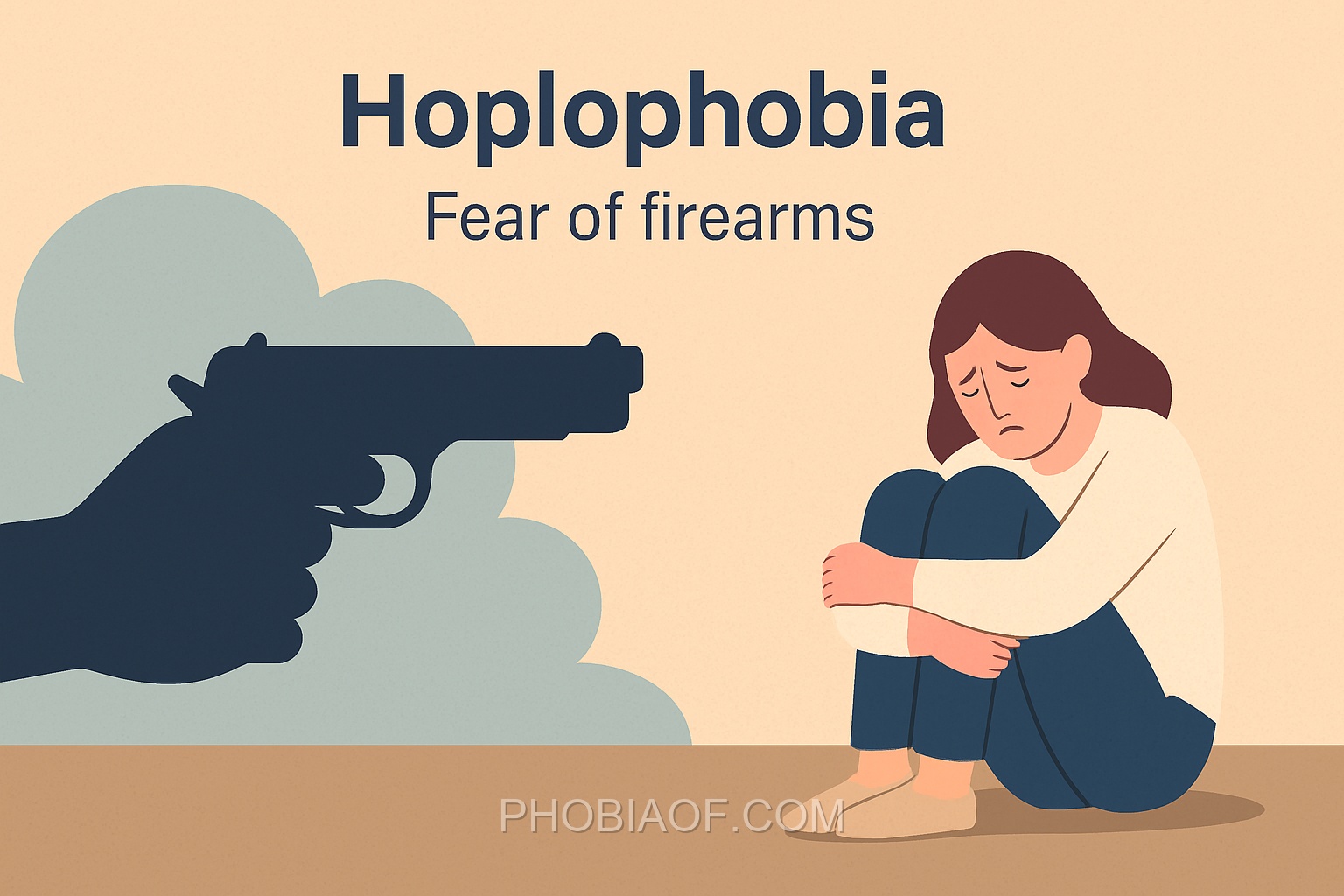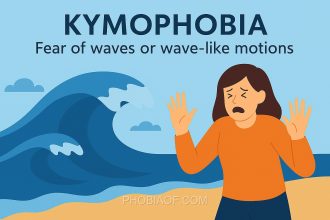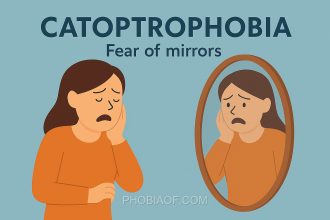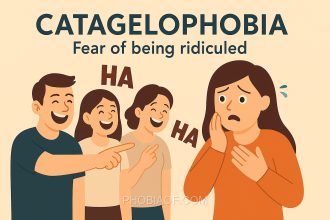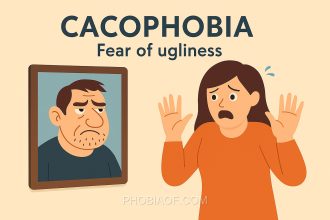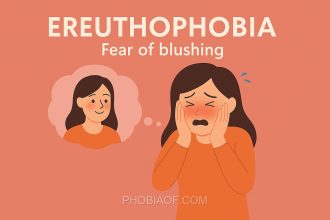Have you ever felt an overwhelming sense of dread or anxiety at the mere sight of a firearm? If so, you might be experiencing hoplophobia, a term coined to describe the irrational fear of firearms.
The word “hoplophobia” is derived from the Greek words hoplon, meaning “weapon,” and phobos, meaning “fear.” This condition is not just about disliking guns; it involves intense anxiety that can significantly affect a person’s daily life and mental well-being.
People with hoplophobia may experience a range of symptoms when confronted with firearms, including:
- Increased heart rate
- Sweating
- Shortness of breath
- Panic attacks
These reactions can occur even in safe environments where firearms are unloaded or securely stored, highlighting the powerful nature of this fear. Understanding and addressing hoplophobia can be crucial for individuals who encounter firearms in their personal or professional lives.
Causes of Hoplophobia
Hoplophobia, the intense fear of firearms, can arise from various factors. Understanding these causes can help in addressing the phobia effectively. Below are some common reasons why someone might develop this fear:
- Genetic Predisposition:
Some individuals may have a genetic tendency towards anxiety disorders, which can include specific phobias like hoplophobia. If anxiety disorders run in the family, the likelihood of developing such fears increases.
- Traumatic Experiences:
Experiencing or witnessing a traumatic event involving firearms can lead to hoplophobia. Such incidents can create lasting impressions, triggering intense fear even in non-threatening situations involving guns.
- Learned Behavior:
Hoplophobia can also be a learned behavior. If a person grows up in an environment where firearms are consistently portrayed as dangerous or if close family members express fear towards guns, they may adopt similar fears.
- Psychological Factors:
Individuals with existing anxiety disorders or those who are generally more susceptible to stress may develop hoplophobia. The phobia might manifest as an extension of their overall anxiety symptoms.
- Environmental Influences:
Cultural attitudes and media portrayal of guns can influence one’s perception and fear of firearms. In areas with high gun violence, the fear can be more pronounced and justified.
Research into phobias, including hoplophobia, continues to evolve. Some interesting theories suggest that phobias may serve as an evolutionary defense mechanism, meant to keep individuals away from potential harm. However, when these fears become irrational and interfere with daily life, they can be debilitating.
Understanding the underlying causes of hoplophobia is crucial for developing effective treatment strategies, such as therapy or counseling, to help individuals manage and overcome their fear.
Symptoms of Hoplophobia
Hoplophobia, an intense fear or anxiety associated with firearms, can manifest in various physical, emotional, and behavioral symptoms. Understanding these symptoms can help in recognizing the phobia in oneself or others.
- Intense Fear or Anxiety: Individuals with hoplophobia experience overwhelming fear or anxiety at the thought or sight of firearms, which can be debilitating.
- Panic Attacks: Exposure to triggers can lead to panic attacks, characterized by a sudden onset of fear and discomfort.
- Sweating: Excessive sweating, especially in situations where firearms are present or discussed, is common.
- Rapid Heartbeat: A fast heartbeat or palpitations may occur as a response to anxiety related to firearms.
- Shortness of Breath: Difficulty breathing or a feeling of being smothered can accompany this phobia.
- Avoidance of Triggers: Individuals may go to great lengths to avoid situations where firearms might be present or mentioned.
- Overwhelming Dread: A pervasive sense of dread or doom can overshadow situations involving firearms.
- Anxiety-induced Nausea: Feeling nauseous or having an upset stomach can be another physical symptom of this phobia.
- Emotional Distress: Intense feelings of distress or helplessness when confronted with their fear.
When severe, these symptoms can significantly interfere with daily life, limiting one’s ability to engage in certain activities or environments where firearms may be present.
Treatment for Fear of Firearms
Hoplophobia, or the fear of firearms, is a condition that can be effectively treated and managed over time. If you or someone you know is experiencing this phobia, it’s important to remember that help is available, and recovery is possible with the right strategies and support.
There are several proven therapies and coping strategies that can assist in overcoming hoplophobia:
Therapies
- Exposure Therapy: This therapy involves gradually and safely confronting the fear of firearms in a controlled environment. The process is typically incremental, starting with less intimidating scenarios and gradually increasing exposure as comfort levels improve. The goal is to reduce fear responses over time.
- Cognitive-Behavioral Therapy (CBT): CBT is a widely used therapy that helps individuals identify and change negative thought patterns related to their fear. By restructuring these thoughts, individuals can develop healthier responses to situations involving firearms.
- Counseling: Speaking with a mental health professional can provide a supportive space to discuss fears and develop personalized coping strategies. Counseling can be a valuable tool in understanding and managing phobia-related anxiety.
Self-Help Coping Techniques
- Relaxation Exercises: Techniques such as deep breathing, progressive muscle relaxation, and visualization can help manage anxiety symptoms and promote a sense of calm.
- Meditation: Regular meditation practice can enhance mindfulness and reduce stress, making it easier to cope with fear-inducing situations.
- Support Groups: Joining a support group can provide a sense of community and understanding. Sharing experiences with others who have similar fears can be empowering and reassuring.
While therapy and coping skills are typically the focus, medication may be considered for severe cases. Anti-anxiety medications can help alleviate intense symptoms, but they are usually used in conjunction with other treatment methods.
If hoplophobia is interfering with daily life, it is crucial to seek professional help. Mental health professionals can offer guidance and support tailored to individual needs, helping to navigate the path toward overcoming this phobia.
Remember, taking the first step to address your fear is a courageous move, and with persistence and the right support, managing hoplophobia is achievable. You are not alone on this journey, and assistance is available to help you regain control and confidence.
Conclusion
In understanding Hoplophobia, the fear of firearms, it is crucial to recognize the underlying causes and symptoms that contribute to this phobia. By gaining insight into these aspects, individuals can feel empowered to address their fears more effectively. Acknowledging the roots of Hoplophobia allows one to take proactive steps towards managing the anxiety it induces.
It is important to remember that phobias, including Hoplophobia, are manageable and many people successfully overcome or learn to cope with them over time. With the right support and strategies, such as seeking therapy or consulting with a healthcare professional, you too can make significant progress in managing your fear.
As you move forward, remain hopeful and motivated. Remember, you are not alone, and there are resources and professionals available to help you on your journey. If you find yourself needing additional support, don’t hesitate to reach out to a therapist or doctor who can provide guidance and assistance tailored to your needs. Embrace the possibility of overcoming your fear and look forward to a more empowered future.
